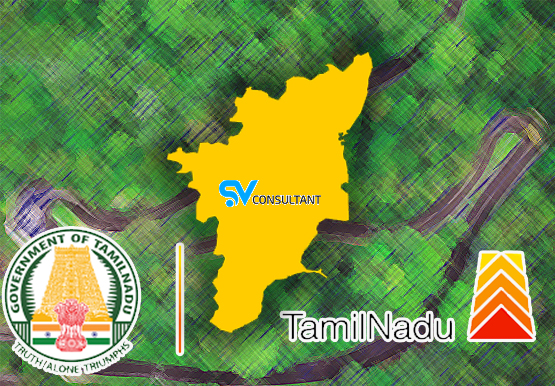Mon-Sat, 9.00am-8.00pm. Sunday CLOSED
Reach us and Let us
Reach You
SV Consultant Extends the Warmest Welcome
Give us the Bliss of being a Memorable part of your business establishment across the Globe. With expertise in advices and reinforcement throughout, We are Happy to Help You!

Imagine having an OPC registered in 10 days! Don’t believe it? Head right away to us to bring that into reality. Setting up a One Person Company is easier than you think. Avail our expert guidance on this to know more.

Limited Liability Partnership is a business venture with a minimum of two members involved. To get your registration done in a matter of days, seek professional and pragmatic guidance from our staff.

Are you a business man or woman leading an Import Export firm? It is vital to get a Unique code registered for your business. Get in touch with SV Consultant to receive your Import and Export Code registration.

Every director of an establishment is mandated to secure a DIN followed by the filing of DIR-3 e-form. Regardless of earlier submissions, DIR-3 is mandatory to be submitted every financial year. With SV Consultant at your assistance, why waste time in brooding? Check out our offers

ITR is to be submitted every financial year by any one who is earning a certain amount through a business venture annually. We offer you precise aids in submission of relevant forms and help you avail the benefits of submission

It is a prerequisite for any company to submit their annual filing. According to the Companies Act, certain forms are required to be produced to the Registry of Companies to avail steady growth. Get your annual filing done in less than a week.
Why Choose SV Consultant

Professional and Practical Solutions
We are overloaded with information. At times it might get difficult to process the right data and make the best use of it. We have an excellent team of trained staff who help you to find and guide you through the course of action. We do not believe in giving random advices. We are sincere and practical in the guidance we offer
The Unlimited Options
The services we offer are not just what we think is right for you. It is also what you think works best from the plethora of options we expose you to. Get acquainted to various registration and certification processes and then help us choose the perfect fit for you.
Round the Clock!
Our services are 24/7. Request a call back from our executive to know more about us, anytime anywhere!.
If you have any query related Registration...
We are available 24/7
About

FAQs
COMPANY REGISTRATION
A. Assuming all required documents are ready, the Registration process can be completed within approximately 15 days.
A. Under the Companies Act, Foreign Nationals or NRIs are eligible to serve as Directors and can also hold a majority stake in the company. However, it is mandatory for at least one Director on the Board to be a resident of India.
A. Yes, a Private Limited Company is permitted to operate multiple businesses, provided that it is specified in the company's MOA and filed via the appropriate Form for approval by a registrar.
A. Yes, we can change the address of by filing the form with required supporting documents and fees and it will be approved by the registrar.
A. Commencement of Business is the official declaration that the Company needs to file with the Registrar of Companies. This declaration is filed before starting the business. It has to filed within 180 days from the date of Incorporation.
Q. What is the time required to establish a Private Limited Company?
Q. Is it possible for Foreign Nationals or NRIs to hold the position of Director in a Private Limited Company?
Q. Can a Private Limited Company operate multiple businesses?
Q. Can I change the principal place of business for the Private Limited Company?
Q. What is Commencement of Business?
TRADEMARK REGISTRATION
A. A trademark is a symbol, word, or phrase that is used to represent a product or service and differentiate it from those of competitors. It is a valuable business asset that distinguishes your company's goods or services from others.
A. Trademark registration protects your brand and helps prevent competitors from using a similar name or logo. It also gives you exclusive rights to use the trademark in the marketplace, and allows you to take legal action against infringers
A. The trademark registration process typically takes around 6-12 months, but the timeline can vary based on various factors, such as the complexity of the application, any objections raised by the registrar, and opposition from third parties.
A. Yes, you can file a trademark application yourself, but it is advisable to seek professional assistance to ensure that the application is correctly filed and to avoid any potential issues with the application.
A. A trademark registration is valid for ten years from the date of registration, and it can be renewed for successive periods of ten years as long as it remains in use.
A. No, you cannot use the ® symbol until your trademark is officially registered. However, you can use the ™ symbol to indicate that you are claiming ownership of the trademark.
Q. What is a trademark?
Q. Why should I register my trademark?
Q. How long does the trademark registration process take?
Q. Can I file a trademark application myself?
Q. How long does a trademark registration last?
Q. Can I use the ® symbol if my trademark is not yet registered?
GST REGISTRATION
A. GST stands for Goods and Services Tax, which is a single tax system that has replaced multiple indirect taxes in India. It is a comprehensive tax system that is levied on the supply of goods and services across India.
A. The benefits of GST include the elimination of multiple indirect taxes, simplification of tax procedures, increased tax revenue for the government, and a reduction in the cost of goods and services for consumers.
A. Any business or individual engaged in the supply of goods or services that exceeds the threshold limit of Rs. 40 lakhs (Rs. 10 lakhs for certain special category states) is required to register for GST.
A. The GST rate varies depending on the type of goods or services being supplied. The GST rates are categorized into four slabs: 5%, 12%, 18%, and 28%.
A. GST return filing is the process of submitting a statement of all sales, purchases, and taxes paid by a GST registered business during a given period.
A. The frequency of GST return filing depends on the type of taxpayer. Normal taxpayers are required to file GST returns on a monthly basis, while businesses with a turnover of up to Rs. 5 crores can file quarterly returns.
A. If you don't file GST returns, you may be liable to pay penalties and fines. Additionally, you may not be able to claim Input Tax Credit (ITC) for the tax paid on inputs. Finally, if you continue to be non-compliant, your GST registration may be cancelled.
Q. What is GST?
Q. What are the benefits of GST?
Q. Who is required to register for GST?
Q. What is the GST rate?
Q. What is GST return filing?
Q. How often do I need to file GST returns?
Q. What happens if I don't file GST returns?
DIGITAL SIGNATURE CERTIFICATE
A. A Digital Signature Certificate is an electronic document that is used to authenticate the identity of a person or entity in digital communication. It contains information about the user's name, email address, and public key.
A. The purpose of a Digital Signature Certificate is to provide secure and authentic digital communication. It is used to sign electronic documents, transactions, and forms to ensure that they are legitimate and have not been tampered with.
A. Any person or entity that wants to participate in secure digital communication can apply for a Digital Signature Certificate. This includes individuals, businesses, and government organizations.
A. There are three types of Digital Signature Certificates: Class 1, Class 2, and Class 3. Class 1 certificates are used for securing email communications, Class 2 certificates are used for electronic filing of documents with government agencies, and Class 3 certificates are used for e-commerce applications and online transactions.
A. To apply for a Digital Signature Certificate, you need to contact a Certifying Authority (CA) that is authorized by the government to issue Digital Signature Certificates. You will need to provide your personal information and complete the required documentation.
A. The validity period of a Digital Signature Certificate varies depending on the type of certificate and the CA that issued it. It can range from one year to three years.
A. To renew your Digital Signature Certificate, you need to contact the CA that issued the original certificate. You will need to provide your personal information and complete the required documentation.
A. The cost of a Digital Signature Certificate varies depending on the type of certificate and the CA that issued it. It can range from a few hundred to several thousand rupees.
A. To use a Digital Signature Certificate, you need to have a digital signature software installed on your computer or mobile device. You can then use the software to sign electronic documents, transactions, and forms.
Q. What is a Digital Signature Certificate?
Q. What is the purpose of a Digital Signature Certificate?
Q. Who can apply for a Digital Signature Certificate?
Q. What are the different types of Digital Signature Certificates?
Q. How do I apply for a Digital Signature Certificate?
Q. What is the validity period of a Digital Signature Certificate?
Q. How do I renew my Digital Signature Certificate?
Q. What is the cost of a Digital Signature Certificate?
Q. How do I use a Digital Signature Certificate?
MSME REGISTRATION
A. MSME stands for Micro, Small and Medium Enterprises. It is a classification of businesses based on their size and turnover. In India, MSMEs are classified based on the investment in plant and machinery or equipment for manufacturing units, and investment in equipment for service enterprises.
A. Registering as an MSME provides several benefits, including access to credit at lower interest rates, tax and excise exemptions, subsidies for technology upgradation, and easier access to government schemes and grants.
A. You can register your business as an MSME online through the Udyam Registration portal launched by the Ministry of MSME. You will need to provide details such as your Aadhaar number, PAN card number, and bank account details.
A. The eligibility criteria for registering as an MSME vary depending on the sector and type of business. For manufacturing enterprises, the investment in plant and machinery or equipment should be less than Rs. 50 lakh for micro enterprises, less than Rs. 5 crore for small enterprises, and less than Rs. 10 crore for medium enterprises. For service enterprises, the investment in equipment should be less than Rs. 10 lakh for micro enterprises, less than Rs. 2 crore for small enterprises, and less than Rs. 5 crore for medium enterprises
A. Registration as an MSME can be done online through the Udyam Registration portal and can be completed within a few minutes.
A. No, MSME registration is permanent and does not require renewal.
A. Yes, existing businesses can register as an MSME if they meet the eligibility criteria.
A. MSME registration is not mandatory, but it is recommended as it provides several benefits to the registered businesses.
A. You can update your MSME registration details by logging into the Udyam Registration portal and making the necessary changes.
Q. What is MSME?
Q. What are the benefits of registering as an MSME?
Q. How can I register my business as an MSME?
Q. What are the eligibility criteria for registering as an MSME?
Q. How long does it take to register as an MSME?
Q. Do I need to renew my MSME registration?
Q. Can an existing business register as an MSME?
Q. Is MSME registration mandatory?
Q. How can I update my MSME registration details?
ISO CERTIFICATION
A. ISO certification is a recognition of compliance with the standards set by the International Organization for Standardization (ISO). This certification is awarded to businesses that meet the requirements of ISO standards in their respective industries.
A. ISO certification is important because it demonstrates that a business meets internationally recognized standards for quality, safety, and reliability. This can increase customer trust and confidence in the business, and may help it to compete in the global market.
A. There are many different types of ISO certification, each relating to a specific industry or area of business. Some common types of ISO certification include ISO 9001 (quality management), ISO 14001 (environmental management), and ISO 27001 (information security management).
A. To get ISO certified, you will need to undergo an assessment by an accredited certification body. This assessment will involve a review of your business processes and systems to ensure that they meet the requirements of the relevant ISO standard.
A. The length of time it takes to get ISO certified will depend on the size and complexity of your business, as well as the specific ISO standard you are seeking certification for. It typically takes several months to complete the certification process.
A. The cost of ISO certification varies depending on the certification body you choose, the specific ISO standard you are seeking certification for, and the size and complexity of your business. It can range from a few thousand to tens of thousands of dollars.
A. ISO certification is valid for a set period of time, typically three years. During this time, you will need to undergo regular audits to maintain your certification.
A. ISO certification is valid for a set period of time, typically three years. During this time, you will need to undergo regular audits to maintain your certification.
A. ISO certification can provide many benefits to a business, including increased customer trust and confidence, improved efficiency and productivity, better risk management, and enhanced reputation and credibility in the marketplace.
Q. What is ISO certification?
Q. Why is ISO certification important?
Q. What are the different types of ISO certification?
Q. How do I get ISO certified?
Q. How long does it take to get ISO certified?
Q. How much does ISO certification cost?
Q. How long does ISO certification last?
Q. How long does ISO certification last?
Q. What are the benefits of ISO certification?
ANNUAL FILING
A. Annual filing refers to the process of submitting financial statements and other required documents to regulatory authorities on an annual basis. It is mandatory for companies to file annual returns and financial statements with the Ministry of Corporate Affairs (MCA) in India.
A. All companies registered in India, including private limited companies, one person companies, limited liability partnerships (LLPs), and public limited companies, are required to file annual returns.
A. The documents required for annual filing may vary depending on the type of company. However, in general, the following documents are required: financial statements, balance sheet, profit and loss statement, cash flow statement, auditor’s report, director’s report, and annual return.
A. Annual filing should be done within 60 days from the end of the financial year. For example, if the financial year ends on March 31st, the annual filing should be done by May 30th.
A. If annual filing is not done within the due date, the company will be liable to pay late fees and penalties. In addition, the company may also face legal consequences such as deactivation of the company's Director Identification Number (DIN) and disqualification of the directors.
A. Yes, annual filing can be done online through the MCA portal.
A. While it is not mandatory to hire a professional for annual filing, it is recommended to hire a chartered accountant or company secretary to ensure accurate and timely filing. They can also help in resolving any errors or issues that may arise during the filing process.
A. Timely annual filing ensures that the company remains compliant with regulatory requirements and avoids penalties and legal consequences. It also helps in maintaining transparency and building trust with stakeholders such as shareholders, lenders, and customers.
Q. What is annual filing?
Q. Who is required to file annual returns?
Q. What are the documents required for annual filing?
Q. When should annual filing be done?
Q. What happens if annual filing is not done?
Q. Can annual filing be done online?
Q. Is it necessary to hire a professional for annual filing?
Q. What are the benefits of timely annual filing?
Reach us and Let us Reach You
Our team of skilled mentors are happy to help you. Fill in the details and post them to receive a Call back.












